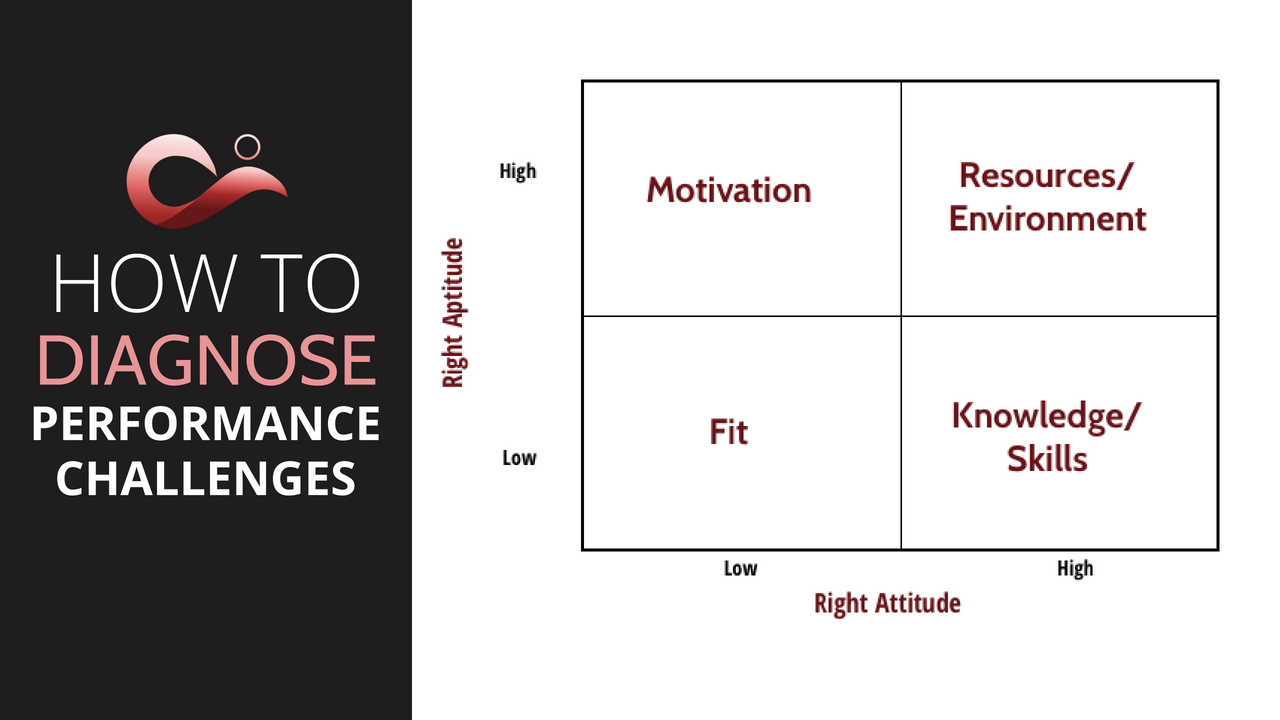How to Diagnose Performance Challenges
Apr 18, 2017
Here's the thing: If you are a consultant (internal or external) at some point you'll be asked to design and deliver a training experience.
It's not that there's anything wrong with training because sometimes lack of knowledge and skills is the root cause to performance challenges. And when it is...you can truly add client value and deliver a powerful ROI.
But if lack of knowledge and skills is not the culprit behind performance challenges, you may be paid well BUT I hate to break it to you (and your client) that what you offer won't create any lasting value for your client...or for your business.
The impact for your client is hopefully obvious. They spend money on a solution that will not likely resolve their challenges.
However, there is a massive impact to you and your business that you may not be aware of. If you say "yes" to a training request without trying to help you client identify their REAL performance gaps and the pinpoint the REAL causes to their performance gaps you inadvertently are:
- Setting yourself up to fall into that "pair of hands" and "trading time for dollars" trap
- Making it harder for your clients to see the full value and range of consulting solutions you can offer (that they REALLY need from you)
- Capping your earning potential
- Creating a barrier to move from a freelancer to a full-on consultant and business owner
So, let me reveal to you a better approach. Pitch to your clients a solution that helps them diagnose the root cause to individual performance challenges.
If you haven't done this type of diagnosis - I got you covered. Here's what you do.
First, check out the table below. It is your quick reference to help you think through the categories of performance issues based on levels of attitude and aptitude.

Then, ask your clients to think about the employee(s) who are not performing well and ask them two questions:
1. How would you rate the employee's ATTITUDE towards the job? Do they demonstrate a high (positive) attitude towards doing well or low (negative) one?
2. How would you rate the employees' APTITUDE towards the job? Do they possess the inherent skills and abilities to perform well?
With their responses in mind, plot the performers in the quadrant that best reflects the potential reasons for the performance challenges.
Once you have the performance problem nailed, you can then help your client identify the best possible solution to their performance challenge as seen in the table below.

- If the individual(s) in question don't have a good attitude and are not wired for the role, training won't do a thing to help. It would be better in this situation to make that individual "available to the industry."
- If the individual(s) in question don't have a good attitude but have all the needed strengths, talents and experience, then it is time to adjust the incentives and rewards for top performance.
- If the individual(s) in question have a good attitude AND are well suited for the job, you have to assume at this point something else is getting in their way such as cumbersome workflows or simply lack of clarity of what the expectations are.
- And if the individual(s) in question have a good attitude but could not perform the duties if someone put a "gun to their head" then my friend, it is time to train. It is time to offer workshops and coaching and other learning interventions that are designed to help bridge knowledge and skill gaps. These situations are the only time that training is the absolute right solution and when offered will create a powerful ROI.
When you diagnose the root cause to performance challenges you definitively provide better support to your clients. You help them maximize their investment of money and time and get the true outcomes that they were seeking your help for in the first place.
But for YOU - WOW! Get ready to transform your results. When you get into the habit of always offering an assessment when your help is needed, you don't have to worry about how to ensure you are set up a strategic partner. This is the way to strategic partnership. You maximize YOUR investment of time and talents while setting yourself up for contracts #2, #3 and so on.
Stay connected with what’s new
JOIN MY INNER CIRCLE
You’ll get weekly insights and best practices to maximize your impact and income as a consultant, coaching and business owner, plus exclusive invites to webinars and resources you won’t find anywhere else.
I'm excited to receive emails from Betsy Jordyn. I know I can unsubscribe at any time.

